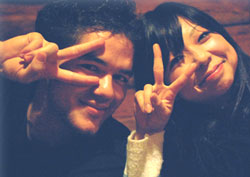 Today I am going to talk about the exciting decisions of those students who broaden their horizons by studying abroad. Furthermore we will talk to an expert who helps these students get the right information and financial support for fulfilling their dreams of living and studying in another country. Last but not least I would like to share an urban myth about an intercultural incident on a British Airways flight complete with a happy ending (at least for some of the people involved!)
Today I am going to talk about the exciting decisions of those students who broaden their horizons by studying abroad. Furthermore we will talk to an expert who helps these students get the right information and financial support for fulfilling their dreams of living and studying in another country. Last but not least I would like to share an urban myth about an intercultural incident on a British Airways flight complete with a happy ending (at least for some of the people involved!)
absolutely remarkable
In Germany it is normal for about 20% of students at universities go abroad during their studies. However, Anne Gründer, is rather special in many ways. She studied Biomathematics and chose to spend a semester studying abroad at EWHA Woman’s University in Seoul, South Korea. And because she enjoyed her time so much she actually extended her stay for a second semester. Anna also successfully learned the language with the Asian symbols that look so unfamiliar to the western eye. Now that she is back in Germany she looks back on the cultural differences she experienced and shares how she benefited from her stay. In our first category she will start by telling us why she chose South Korea as her destination for her semester abroad.
absolutely courageous
If one of our listeners is toying with the idea of coming to Germany, our interview will be particularly interesting for you. Kata Perjési is an Hungarian student. After spending a study semester abroad in Finland, she had planned to do her internship in Finland too. However, luckily for us she ended up being our new intern here at RheinAhrCampus. Kata is from Corvinus University in Budapest and will stay here for six months. In our next category she is going to tell us, why she chose Germany as her destination and what benefits she expects to get out of her stay abroad.
absolutely ideal
Our last guest for today is Wolfgang Kräft. He is working for the “German Academic Exchange Service or DAAD”. Together with his team, one of Wolfgang’s jobs is to travel through Germany and to inform German students how they could study abroad and which financial support they can get. They stop in bigger cities with their go-out mobile bus and provide students with a lot of information. In our last category Wolfgang will tell us what the ideal study abroad student should look like, how students can receive information about a semester abroad and finally he will give us advice on how your stay abroad could be the most productive time of our studies.
absolutely funny
Let me finish today with an intercultural urban myth about a black man and a white woman – a story has turned into a well-copied piece on the internet over the last decade. According to different versions this incident would have happened on about 17 different Airlines which is not very plausible but the story is nice enough to be re-told here:
“A 50- year old white woman on a British Airways flight arrived at her seat and saw that the passenger next to her was a black man. Visibly furious, she called the air hostess.
“Whats the problem, ma?” the hostess asked her
“Cant you see?” the lady said – “I was given a seat next to a black man. I can’t sit here next to him! You have to change my seat”
– “Please, calm down” – said the hostess
“I think, all the seats are occupied, but I`m still going to check if we have any.”
The hostess left and returned some minutes later.
“Madam, I spoke to the captain and he confirmed that there isn`t any empty seats in the economy class. We only have seats in the first class.”
“Look, it is unusual for our company to allow a passenger from the economy class be upgraded to the first class. However, given the circumstances, the captain thinks that it would be a scandal to make a passenger travel sat next to an unpleasant person.”
And turning to the black man, the hostess quickly said:
“Which means, Sir, if you would be so nice to pack your hand luggage, we have reserved you a seat in the first class…”
And all the passengers nearby, who were shocked to see the scene started applauding, some giving standing ovations.”
Adapted from: http://www.thatsnonsense.com/view.php?id=1481
Our next show will be coming to you from Anne Fox in Denmark on 4 May.
Until then –
Bleiben Sie absolut interkulturell!
The host of this show is: Dr. Laurent Borgmann
Editor: Markus Scherer
![]() Download
Download
![]() Podcast-Feed
Podcast-Feed
![]() iTunes-Abo
iTunes-Abo


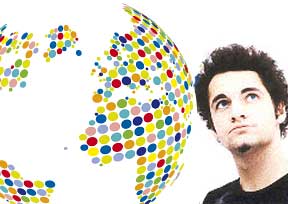


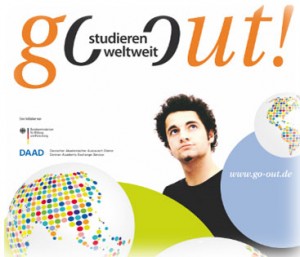
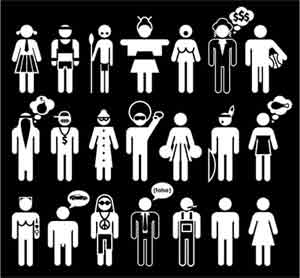

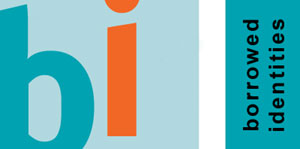 absolutely student-centred
absolutely student-centred